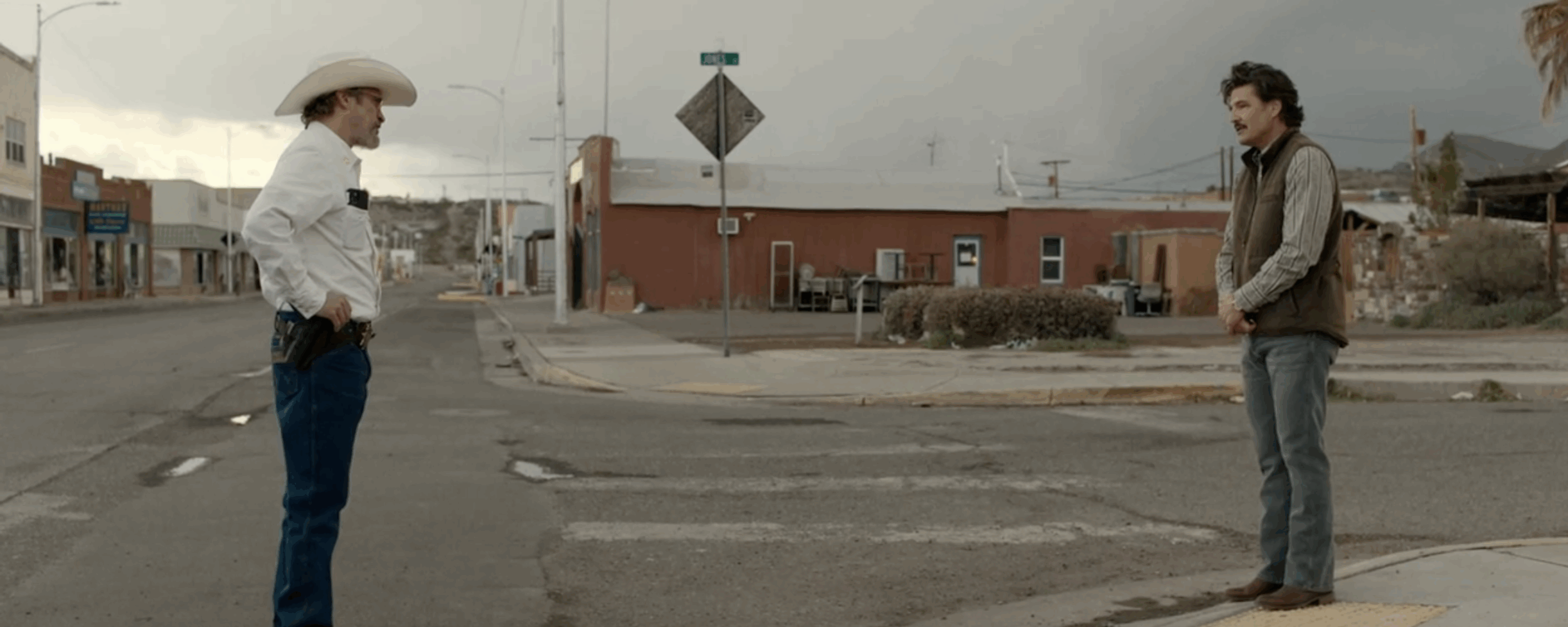The film is set in 2020, one of the most hostile and uncertain periods of time in living memory, and the film deals with all of this in what seems to be the pressure cooker of Eddington, New Mexico where it is set. The backdrop is that of the coronavirus crisis where wearing masks and protecting others create the main early grudge between Sheriff Cross (Joaquin Phoenix) and Mayor Garcia (Pedro Pascal). This then becomes overshadowed when race movement and conspiracy theories start to get more of a grasp on the storyline that creates deeper ructions within their community. This in itself is a perfect potion to make a satire from, a community in turmoil where the clashing of political and ideological beliefs leaves all paranoid of each other. This is one of the main strengths of the film that it is a heightened satire which never takes sides. It doesn’t prod the audience what side to be on through narrative but allows the characters to dig their own graves and lose track with reality.
The film follows the Taxi Driver (Scorsese, 1976) style of anti-hero. Sheriff Cross (Joaquin Phoenix) is morally inept from the start, but through the hardship that he faces you end up backing their corner by the end. The pathos we feel for him leads this charge where in what becomes the final battles, it is no longer about politics, and more about this individual on a humane level. The sheriff is also one of a few characters where you actually visualise their emotions in the film. Cinema is all about spectacle so when a character offers this in return, you of course gain more of a connection to the character. This is in comparison to Mayor Garcia (Pedro Pascal) whose role requires him to underplay any emotions, he is still a hostile individual but knows exactly how to push the Sheriffs buttons.
The film manages to be this satire, which delivered well on the laughter. More than this it becomes a successful thriller film that subverts the audiences preconceptions from the start. Ari Aster started his directorial career making horror films, but here he creates the greatest moments of suspense that he has done throughout his career. This either comes from subverting the moments of battle to when you start to feel less tense, or through cinematography where in one of the final scenes the camera doesn’t follow the sheriff directly but pans around to empty scenery that adds to the tension.
Making it as satirical and political as it is, it can be seen as Ari Aster’s closest film to reality to date. But the apocolypictic way in which the story decends into chaos bring the story back into the shared space along with all the other great pieces of work from his paranoid mind. It manages to descend into chaos, and create all these detestable characters, but throughout you still feel a great connection with the narrative and the redemption of feeling towards the Sheriff is something that can only be achieved in the best of anti-hero films.
